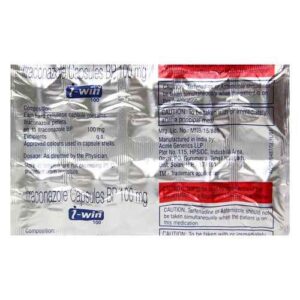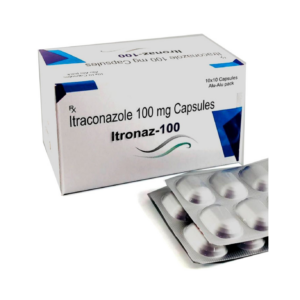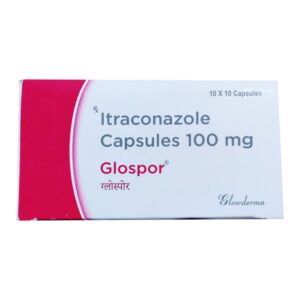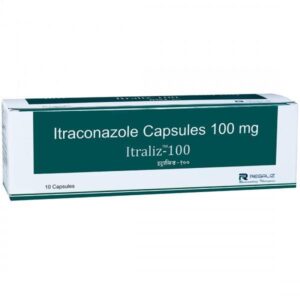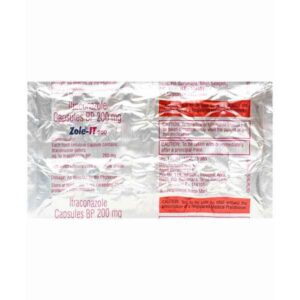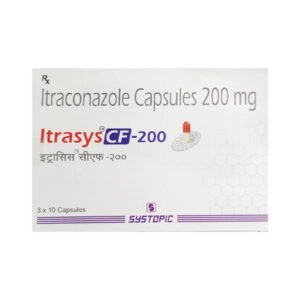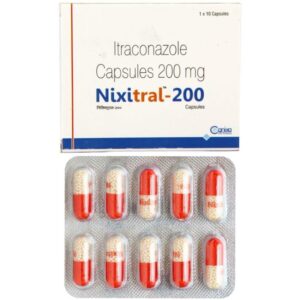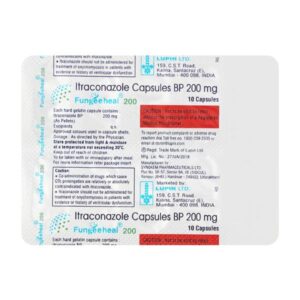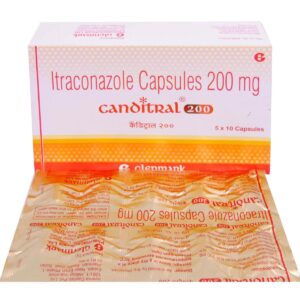ITRACONAZOLE
ITRACONAZOLE: ITRACONAZOLE is an antifungal medication primarily used to treat fungal infections. It belongs to the class of drugs known as triazoles, which work by inhibiting the synthesis of ergosterol, a crucial component of the fungal cell membrane.
It is commonly prescribed to treat various types of fungal infections, including aspergillosis, histoplasmosis, blastomycosis, and certain types of candidiasis. It may also be used to prevent fungal infections in individuals with weakened immune systems, such as those with HIV/AIDS.
ITRACONAZOLE is available in oral capsule and oral solution forms. The dose and duration of treatment depend on the specific infection being treated. It is important to follow the instructions provided by the healthcare professional or the medication label. Taking it with a meal or acidic beverage can enhance its absorption.
As with any medication, ITRACONAZOLE may cause some side effects. Common side effects include nausea, vomiting, stomach pain, diarrhea, headache, and dizziness. These side effects are generally mild and typically subside with continued use. Less common side effects may include rash, itching, changes in taste or smell, and liver function abnormalities.
Serious side effects are rare but can occur. These include severe allergic reactions, liver toxicity (which may manifest as yellowing of the skin or eyes, dark urine, pale stools, or abdominal pain), and heart rhythm abnormalities (which may present as dizziness, fainting, or irregular heartbeat). If any of these severe side effects occur, it is important to seek immediate medical attention.
ITRACONAZOLE may interact with several medications, such as certain anticoagulants, antiarrhythmics, anticonvulsants, antiretrovirals, and certain medications metabolized by the liver. It is essential to inform the healthcare professional about all medications and supplements being taken to minimize the risk of interactions.
Overall, ITRACONAZOLE is an effective antifungal medication commonly prescribed for various fungal infections. It is crucial to take the medication as prescribed, follow necessary precautions, and report any concerning side effects to the healthcare professional.




